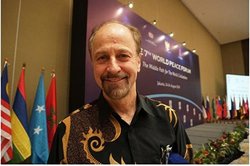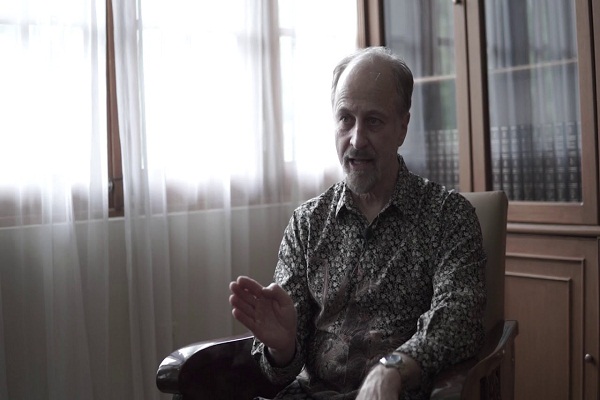Desecration of Islamic Sanctities Offensive to Most Religious-Minded Non-Muslims


“Most of the individuals involved in the burning of the Quran are right-wing extremists who are seeking, not just to insult Muslims around the world, but to offend and hurt the Muslim citizens in their own Western country,” Professor Robert Hefner told IQNA in an interview.
Robert W. Hefner is a professor in the Department of Anthropology and the Pardee School of Global Affairs at Boston University.
He is a social theorist who specializes in the anthropology of religion, ethics and law (including shariah law), education and youth development, as well as the comparative study of gender, citizenship, globalization, and modernity.
Following is the text of the interview:
IQNA: In recent weeks some people in Europe burned copies of the Quran. What is the reason for such insistence on Islamophobic actions?
Hefner: Most of the individuals involved in the burning of the Quran are right-wing extremists who are seeking, not just to insult Muslims around the world, but to offend and hurt the Muslim citizens in their own Western country. These actions by extremists are deeply offensive, not just to Muslims, but to the great majority of religious-minded non-Muslims like myself who deeply respect, and have learned from, the history and beauty of Islam.
IQNA: Are there any laws in your country (the US) regarding blasphemy?
Hefner: Unlike some Western nations, including the United Kingdom, he United States does not have laws on blasphemy or religious defamation. There are some laws on hate speech – but these are not sufficient to take action against the ill-intended and hateful people who burn the Quran.
IQNA: Some believe that actions such as burning the Quran and publishing cartoons of the Prophet of Islam (PBUH) are the outcome of overemphasis on freedom of speech. Does freedom of speech allow such actions?
Hefner: This is a matter of deep disagreement among scholars who subscribe to international human rights standards. Some supporters of those standards, including many here in the US, feel that there should be no limitations on hate speech or blasphemous activities intended to hurt the feelings of religious believers. I disagree with this position, and feel that there is a place within international human rights and within democratic orders for limits on free speech when that speech is hateful or, as in the caricatures of the Prophet Muhammad recently republished in France, are clearly intended to harm the religious feelings of believers. I have condemned, and again condemn the publication of the offensive caricatures of the Prophet Muhammad. They are a form of hate speech and religious defamation, and, in my view, they are contrary to the higher aims of international human rights. All of us should speak out against such hateful acts.

IQNA: What do you think is the main reason for Islamophobia in the West?
Hefner: There are several factors. Arguably the most significant is that there is a new style of right-wing populism in many Western countries that seeks to inflame anti-Muslim sentiments. Fortunately, although the number of such Islamophobes has certainly increased, the majority of citizens in the United States continue to respect Islam, and respect the love that Muslims feel for the Prophet Muhammad. But those of us who live in the West, Muslim and non-Muslim, must continue to work to increase public understanding of Islam, so as to combat the caricatures of Islam and Muslims promoted by right-wing extremists.
IQNA: Some believe that Islamophobia and its growth in the West have led some Muslims to turn to groups such as Daesh (ISL or ISISI and al-Qaeda. What is your opinion?
Hefner: Although some may have, all evidence indicates that the great majority of people who joined ISIS did so for reasons that had to do with a more general sense of alienation and frustration, a sense which was in turn manipulated by irresponsible actors on the internet. In this regard, people drawn to groups like ISIS actually have more in common with the far right extremists recruited by stories of “Q-non” and other claims of global conspiracies here in the United States.
IQNA: How do you think Muslims can deal with Islamophobia?
Hefner: The most important thing is to work together, to reject the idea of a clash of civilizations, and, for those of us who live in Western countries, to provide better information on the history and civilizational beauty of Islam.
Interview by Mohammad Hassan Goodarzi



